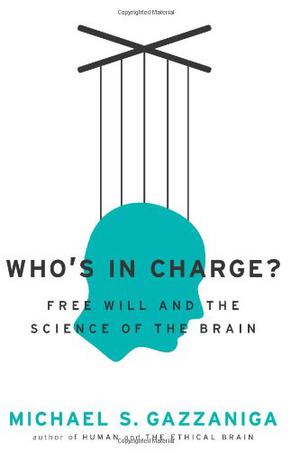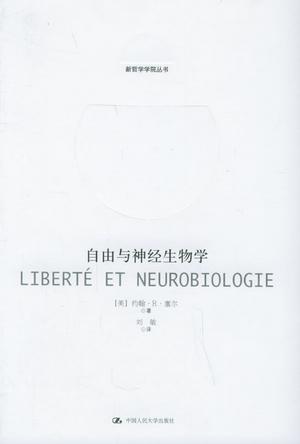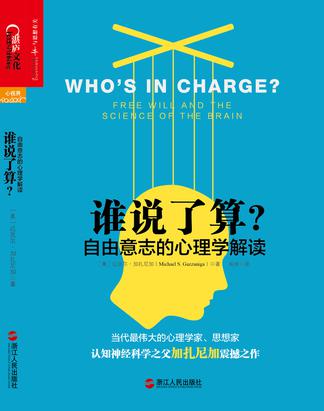欢迎来到相识电子书!
标签:自由意志
-
A Contemporary Introduction to Free Will
Accessible to students with no background in the subject, A Contemporary Introduction to Free Will provides an extensive and up-to-date overview of all the latest views on this central problem of philosophy. Opening with a concise introduction to the history of the problem of free will--and its place in the history of philosophy--the book then turns to contemporary debates and theories about free will, determinism, and related subjects like moral responsibility, coercion, compulsion, autonomy, agency, rationality, freedom, and more. Classical compatibilist and new compatibilist theories of free will are considered along with the latest incompatibilist or libertarian theories and the most recent skeptical challenges to free will. Separate chapters are devoted to the relation of free will to moral responsibility and ethics; to modern science; and to religious questions about predestination, divine foreknowledge, and human freedom. Numerous down-to-earth examples and challenging thought experiments enliven the text. The book is an ideal addition to introduction to philosophy, metaphysics, and free will courses. -
Elbow Room
Anyone who has wondered if free will is just an illusion or has asked 'could I have chosen otherwise?' after performing some rash deed will find this book an absorbing discussion of an endlessly fascinating subject. Daniel Dennett, whose previous books include Brainstorms and (with Douglas Hofstadter) The Mind's I, tackles the free will problem in a highly original and witty manner, drawing on the theories and concepts of several fields usually ignored by philosophers; not just physics and evolutionary biology, but engineering, automata theory, and artificial intelligence.In Elbow Room, Dennett shows how the classical formulations of the problem in philosophy depend on misuses of imagination, and he disentangles the philosophical problems of real interest from the "family of anxieties' they get enmeshed in - imaginary agents, bogeymen, and dire prospects that seem to threaten our freedom. Putting sociobiology in its rightful place, he concludes that we can have free will and science too.Elbow Room begins by showing how we can be "moved by reasons" without being exempt from physical causation. It goes on to analyze concepts of control and self-control-concepts often skimped by philosophers but which are central to the questions of free will and determinism. A chapter on "self-made selves" discusses the idea of self or agent to see how it can be kept from disappearing under the onslaught of science. Dennett then sees what can be made of the notion of acting under the idea of freedomdoes the elbow room we think we have really exist? What is an opportunity, and how can anything in our futures be "up to us"? He investigates the meaning of "can" and "could have done otherwise," and asks why we want free will in the first place.We are wise, Dennett notes, to want free will, but that in itself raises a host of questions about responsibility. In a final chapter, he takes up the problem of how anyone can ever be guilty, and what the rationale is for holding people responsible and even, on occasion, punishing them.Daniel C. Dennett is Professor of Philosophy at Tufts University. Elbow Room is an expanded version of the John Locke Lectures which he gave at Oxford University in 1983.A Bradford Book. -
Free Will
The physiologist Benjamin Libet famously demonstrated that activity in the brain's motor regions can be detected some 300 milliseconds before a person feels that he has decided to move. Another lab recently used fMRI data to show that some "conscious" decisions can be predicted up to 10 seconds before they enter awareness (long before the preparatory motor activity detected by Libet). Clearly, findings of this kind are difficult to reconcile with the sense that one is the conscious source of one's actions. The question of free will is no mere curio of philosophy seminars. A belief in free will underwrites both the religious notion of "sin" and our enduring commitment to retributive justice. The Supreme Court has called free will a "universal and persistent" foundation for our system of law. Any scientific developments that threatened our notion of free will would seem to put the ethics of punishing people for their bad behaviour in question.In Free Will Harris debates these ideas and asks whether or not, given what brain science is telling us, we actually have free will? -
发现自由意志与个人责任
本书试图解释人的自由意志是怎样形成的,以及每个人在日常行为中为表达某种意图而承担的资任。作者希望读者能从本书中认识到人类的一种天性――人是有能力实践通常所说的那种“自由意志”的,进而能深刻地理解“人类意味着什么”。 -
The Illusion of Conscious Will
Do we consciously cause our actions, or do they happen to us? Philosophers, psychologists, neuroscientists, theologians, and lawyers have long debated the existence of free will versus determinism. In this book Daniel Wegner offers a novel understanding of the issue. Like actions, he argues, the feeling of conscious will is created by the mind and brain. Yet if psychological and neural mechanisms are responsible for all human behavior, how could we have conscious will? The feeling of conscious will, Wegner shows, helps us to appreciate and remember our authorship of the things our minds and bodies do. Yes, we feel that we consciously will our actions, Wegner says, but at the same time, our actions happen to us. Although conscious will is an illusion, it serves as a guide to understanding ourselves and to developing a sense of responsibility and morality. Approaching conscious will as a topic of psychological study, Wegner examines the issue from a variety of angles. He looks at illusions of the will—-those cases where people feel that they are willing an act that they are not doing or, conversely, are not willing an act that they in fact are doing. He explores conscious will in hypnosis, Ouija board spelling, automatic writing, and facilitated communication, as well as in such phenomena as spirit possession, dissociative identity disorder, and trance channeling. The result is a book that sidesteps endless debates to focus, more fruitfully, on the impact on our lives of the illusion of conscious will. -
自由意志
几个世纪来,科学被排斥在善恶对错的问题之外,像“我们从哪里来”,“我们到底有没有自由意志”这样的终极话题长久地供奉在哲学和神学的圣坛上。 认知神经科学家萨姆•哈里斯勇猛地将自己的科学之剑指向道德世界。他提出科学不但可以,而且更应当成为道德问题的准则,科学可以为人类设立新的价值观,带领我们走向真正幸福的生活。 在《自由意志》一书中,哈里斯以睿智、妙趣横生的方式向我们揭开了“自由意志”的秘密,心理学、物理学、哲学“自由意志”原来是场幻象,我们该不该对自己的行为负责,如果我们不能,世界是否会变得更糟。书中不但有中国科学院理论物理研究所研究员李淼博士的精彩导读,更有作者与著名哲学家、认知科学家丹尼尔•丹尼特的激情辩论。 -
自由与神经生物学
约翰·R·塞尔以他在语文学与精神方面的研究成果享誉全球。在本书中,他在自身的视野里,继续深入在实用哲学领域的研究,重新探讨了一个深刻的问题——自由与政治权力。怎么样才是自由的?如果我们在认识论科学和神经生物学的领域中质疑现代的研究成果,我们就必须在决定论的假设中加入某种类型的关系。因此问题就在于:为了使得自由成为可能,神经的本质作为物理事实应该怎样? 本书收集的两篇文章是约翰·R·塞尔2001年年应巴黎-索邦大学和该大学的哲学社会学UFR的邀请,在帕斯卡·恩格尔倡导的“现代理性”欢迎小姐的巴黎研讨会上做的讲座,基于上保留了讲座本身所具有的口语特征。 塞尔认为西方哲学史上的精神与肉体之二元说是错误的。大脑的思维活动以及其他的心理现象,比如“知觉”、“意志”等,都是大脑生理机制的自然特征,没有任何神秘之处。意志赋予世界意义,言语行为是对大脑的延伸。人的大脑是由神经、脑髓、血液等构成的有机体,是客观的,但它又如何产生主观的心理活动呢?这是心智哲学、人工智能和认知心理学所共同关注的话题,塞尔在本书中却从神经生物学出发给予了不同的解读与反思。 -
谁说了算?
左脑右脑谁说了算?是你在决定还是你的大脑在替你决定?人该为自己的罪行负责吗? 开创认知神经科学的著名思想家加扎尼加被誉为脑科学界的斯蒂芬•霍金。他在这本书里用“睿智而不夸张”的语言从脑科学的角度阐释自由意志问题,讲述了人类大脑的作用机制、意识的来源、社会意识的进化以及自由意志观念对于整个社会的影响。他告诉我们,人的思维是大脑整体运作的结果,既有从上而下也有从下而上的机制。本书还涉及物理学、社会学中那些会决定“我”的部分。 这是一本可以改变你的世界观的书。 -
理解自由意志
本书从自由意志在人类生活中的重要性入手,详细阐发了由自由意志问题引发的各种流派、观点及其论证,重点探讨了相容论与不相容论对自由意志问题提出的种种解决方案。 当然,作者的目的并不仅仅是描述自由意志问题本身的发展脉络,更在于揭示通过自由意志问题而达到的自我理解对于我们人类的意义。 诚如作者所言:作为人,我们的尊严并不在于通过价值实验来形成一个完全具有原创性、但与世界没有任何合理联系的自我,而是在这一事实:通过认识和回应人类共同分享的道德理由,我们把自己塑造为一个道德上负责任的自我,那种对人类的共同命运充满关怀和同情、对自己负责的同时也对他人负责的自我。如果我们已经成功地形成了这样一个自我,那么人类的生活世界就会少一些不确定性,少一些使我们无法做出选择的道德困境。 -
自由意志与道德责任
《自由意志与道德责任》讲述了:《当代西方政治哲学读本》置身于当代的语境,围绕当代西方政治哲学重要和核心的观念、问题、流派乃至人物,收入各个专题最为重要的学术文献,以既不失客观公正、又富于个性特色的方式,展现当代西方主流政治哲学的面貌。本系列旨在为相关领域的从业和爱好者提供入门津梁,也可作为进入当代政治哲学理论前沿的基本读物。有关自由意志和道德责任的问题是哲学史上最古老、最持久的问题,也是最艰难的一个问题。这个问题贯穿了整个西方哲学发展的历史,引起了哲学家们的广泛关注和讨论,而且在当代西方哲学中也占据一个核心地位,究其原因,是因为这个问题实际上与我们人类生活的处境和状况具有密切的联系,因此对它的探究就成为了人类自我认识和自我理解的一种最重要的方式。目前这个问题在国内尚未得到应有的关注,希望本文体的出版能够激发有关方面的学生和学者地这个领域的兴趣。
热门标签
下载排行榜
- 1 梦的解析:最佳译本
- 2 李鸿章全传
- 3 淡定的智慧
- 4 心理操控术
- 5 哈佛口才课
- 6 俗世奇人
- 7 日瓦戈医生
- 8 笑死你的逻辑学
- 9 历史老师没教过的历史
- 10 1分钟和陌生人成为朋友











